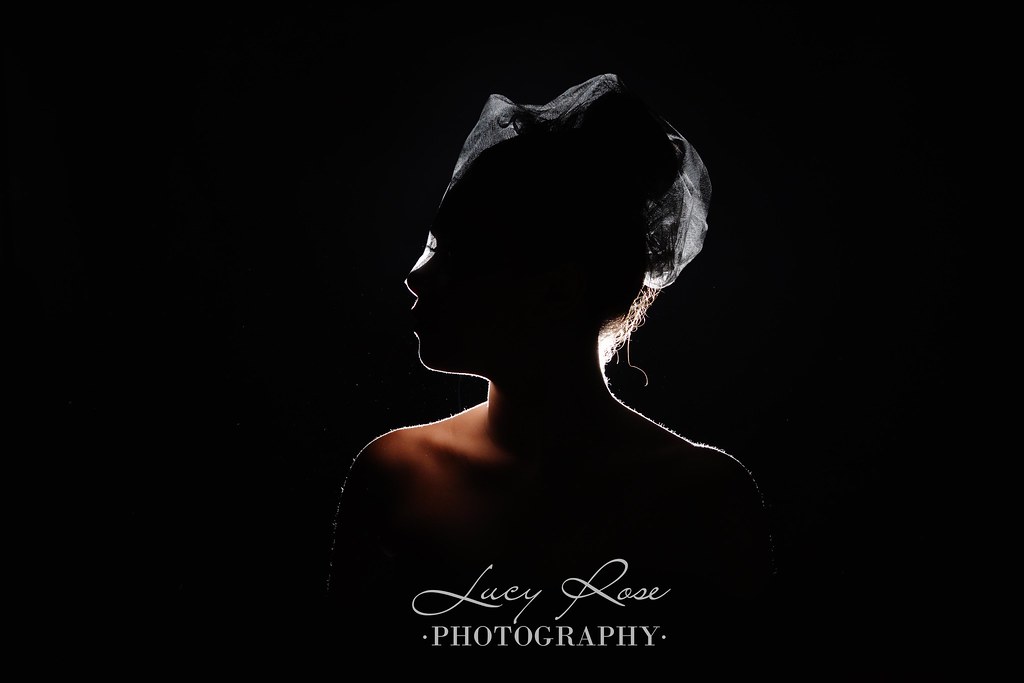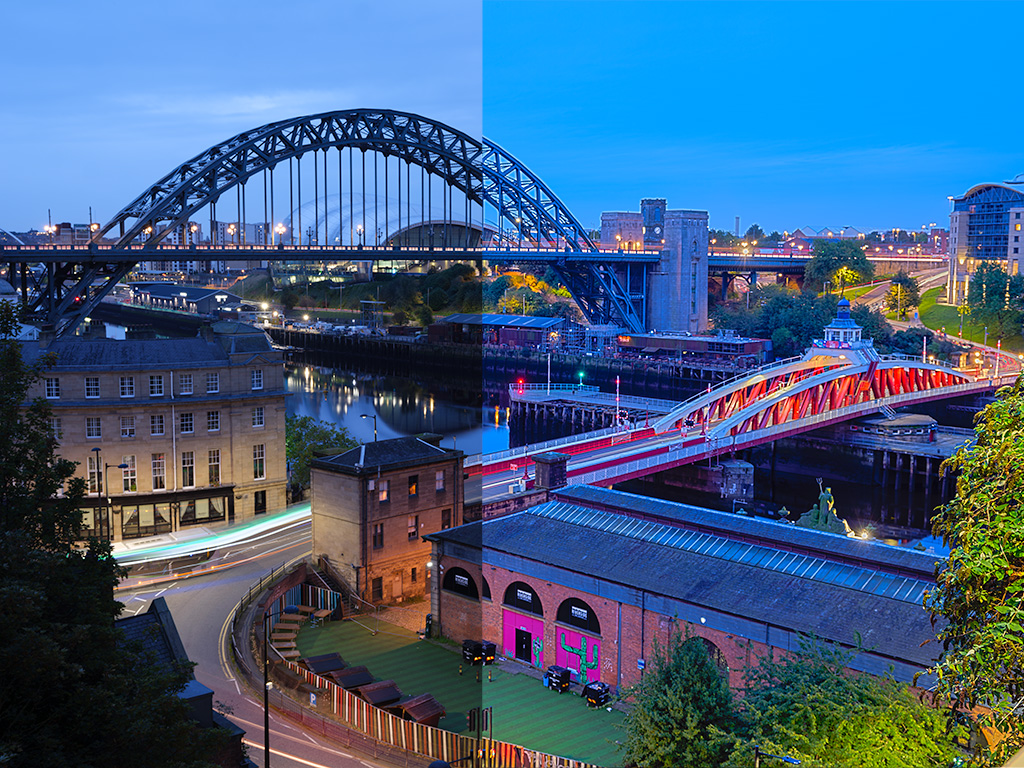The majority of photographers don’t like watermarking their images. Why mar the perfect balance of your picture with a distracting logo, right? Watermarks should be regarded as a necessary evil, however, and photographers and internet users alike have learned to accept it as an inevitability. In this digital age, stealing someone's image is as simple as “right click, save as.” It doesn't take much to carry out a digital crime and violate copyright. In my opinion, watermarking is an indispensable protection in the world of photography.
Why should you put a watermark on your photo?
Watermarking is one of the ways you can protect yourself from the actions of individuals with no conscience nor respect for another's work. Watermarking is not infallible, but it is the easiest defense to implement.
Watermarking can also serve as a form of branding or corporate advertising, and so on. A simple watermark can accomplish a lot. In this day and age, many individual and corporate entities (even social media channels) want to be recognized as a unique brand. Why should photographers as independent artists get left behind?
Photo by Siza Padovan
Watermarking has a wide spectrum of benefits and downsides.
Pros:
For one thing, watermarking does provide moderate protection against online thievery, because even though the watermark can occasionally be cropped out, most of the times it isn't worth the effort. There are those persistent enough to erase a watermark by healing and cloning around it, but this requires a good deal of work. If the case of a stolen digital file was taken to court, having an original watermarked image would be strong evidence against someone claiming they “found” the cropped image with no watermark.
Another benefit is that you can advertise your business through your watermark: include your contact info, webpage, social media accounts, and so forth. It can be used to funnel audiences to the site where you sell that particular image along with others. Or, your information could direct viewers to your bookings page. If you are into club/concert photography, you can be paid to advertise different companies in the watermark area of each image.

Photo by lucyrosephotographer
Lastly, if your image gets stolen but the watermark isn't removed, this works as free advertising for you.
I’m still dreaming of a file format that will allow for embedded trackers which are not removable, and would monitor the traffic and location of each copy. Until I get my wish, watermarks will have to do the job.
Cons:
Let's first tackle the biggest and most obvious annoyance: watermarks are distracting and can ruin a shot. Many people hate them because of that, and depending on the design, they can be really be distracting, especially if you use flashy colors, or place them over an entire image.
Then there is the irritating group of purists that will ignore an image if they see watermark on it. On multiple occasions I have been told something along the lines of “Your image looks decent, but I would like for you to send me one without a watermark so I can see it properly.” I must explain in my defense that my watermark sits in one of the corners of the images and is semi-transparent. It doesn't even cover 10% of the image, so I know it would not totally obscure the view. Why would I send you, random person on the internet, my image without a watermark? Isn't this the whole point of it?
Photo by Shermeee
At the end of the day, the final choice rests with you. You can watermark your photos with a small or large sticker, or you can leave the images as they are. If you choose to watermark you images, make sure that you keep a full-resolution copy of each one without watermarking because you will probably need them again for edits. If you plan on posting an image online with a watermark, upload a small resolution. This way, even if it is stolen from you, it can’t be used for much.
There is another thing you should consider while we're on this topic and that is to never post full-resolution images on the internet (watermarked or not). At the very least you can retain the print profits this way. There are many sites that sell prints of stolen images, and it might take years for someone to discover that their images are being sold without their permission. That's a loss you'd likely never recover.
As I already said, I don’t like using watermarks, but I feel compelled to do so for obvious reasons. I do it in as subtle a way as possible so that the photo isn't ruined.
How about you? What are your thoughts on watermarking – are you watermarking your images, and if you do, how are you doing it? Subtly or boldly? Share your thoughts in the comments below.







28 Comments
Yes, I always watermark my photos. I also need to tone down the resolution.
I enjoy the fact a person would right click and save if my photo was used for commercial interest that is an issue. For a human to enjoy a small image love it.
I understand, more than most, the necessity of watermarking one’s photographs. I have a degree in photography, and I worked for five years as a senior lab technician in a busy photo lab, so I know why they are there and I respect them. However, as you said, some people go WAY beyond the realm of good taste to protect their images. I’ve seen watermarks that cover the faces of kids in family photos. I’ve seen big, super contrasting logos smack dab in the middle of a woman’s forehead. And I’ve seen studio names that, while in a corner, draw more attention than the subject of the photo, itself.
Looking at your three examples, I can say that I like the cat one. It is unobtrusive, in a corner, low opacity, and visually relevant to the image. The second one, I can see being good for a promotional display or ad for the photographer. However, I would not hang it on my wall, as is. Same for the third photo, with the watermark in the middle. Great for promo image in a wedding magazine and generally tasteful, but as with the second image, I would Photoshop the logo out before I hung it on my living room wall.
Well that is the point, you shouldn’t photoshop the logo out, instead you should purchase the photo from the photographer and you’ll get a clean copy. That is the whole idea.
Yeah, I think “Tom” doesn’t quite get it. Or, maybe he does get it…and is just expecting to get photographic art for free.
Also, in the U.S., if you use watermarks on your image and then it is infringed with your watermark cropped or cloned out and you sue the infringer you can also request anywhere from $2,500.00 to $25,000.00 compensation because it would be considered “willful infringement”.
That too. But it is a long painful process.
Even though I agree that a watermark can help you brand your image, I don’t think it provides any protection. As far as I know, protection comes from the intellectual property authority in your jurisdiction. You can read my opinion here: https://pxboard.com/es/entry/2014/10/03/should-you-watermark-your-images
“Why This Photographer Thinks You Should Watermark Your Photographs”
And this thinks it’s none of that photographers business whether or not I watermark my images.
There seems to be a growing trend amongst photographers for telling other photographers how they should take their photographs. “get it right in camera”, “don’t post produce”, “use manual focus” … It’s bloody annoying.
If you don’t like the opinion of other photographers and the suggestions they offer, no one is forcing you to read these articles. Just scroll past them and find the content you are looking for.
I like your idea to use watermark, though I’d prefer to use a semitransparent one in a corner (I’m one of those purists). Until today, I’ve been only toning down the resolution before sharing online.
> “I’m still dreaming of a file format that will allow for embedded trackers which are not removable, and would monitor the traffic and location of each copy. Until I get my wish, watermarks will have to do the job.”
We’re working on it! Check http://www.digify.com
Right now we have active watermarking on images, so you can share high res photos in the cloud with copy protection. We also have tracking features so you know who has seen your files.
Agree that this is something done out of need though. Photographers should be credited for their work, but unfortunately not everyone sees that way right now.
Don’t forget you can apply a digital watermark. You and I don’t see it, but a computer can detect it. There are search services that help you find unlicensed uses and take action, which can be as simple getting the user to pay a license feel. See https://www.digimarc.com/products/guardian/images
Yes! I watermark and use low res pictures when I put them on the Internet. My website is Right Clicked protected. I did this after finding a photo art piece of mine printed and hanging in a friend of mine’s house. I was flattered, but surprised, because I had no way of knowing this happened. Screen grabs and low res pics are very useful, especially if there is a watermark.
Oops! correction to my comment above.
Screen grabs and lows res pics are NOT very useful …..
One photographer was visiting some family in another city and went to one of their friends houses for dinner. Up on the mantle was an 8×10 big ol’ watermark and all on the mantle.
The bar is set pretty low as to what people will hang on their walls. I suspect the resolution can be surveillance camera ugly as long as they can still recognize the person.
I can’t believe a friend would have the nerve to do that!!! How would they not know you would find out? And they thought you would not care if they stole your print? I am curious—did you say anything to them about the theft?
I am not a fan of watermarks at all ~ doing research on photographers like Annie Leibovitz just to name one who does not use watermarks who should be every right protect her photographs but she doesn’t as for other photographers who are paid humongous money and they are not watermarking their photos either ~ if someone wants to steal something they are going to do it anyway ~ look at all the knock off artists that make reproductions of famous art ~ only way I would be upset if someone took my photo and made a million dollars with it but then again I have to think hey why did I not think of that ~ the watermarks that are practically invisible and tasteful I can live with those that I have seen that scream OMG no one can steal my work ~ well DUH who would want to with your larger than life watermark that is smack dab in a photograph that is so distracting I just laugh ~ gawd are they insecure or what..finally I see so many insecure photographers that they someone really wants their work so bad when in reality I just pass them on and go look at other artists that are secure enough not to worry about it
I always watermark my photo’s although it is a small semi translucent overlay which is placed in the bottom right corner or if that overlays anything important in the picture it goes bottom right.
You can see my watermark bottom right on this link here
I watermark the photos that I upload, especially to photo sharing sites like Flickr. My watermarks are always very opaque, almost invisible, and sometimes I crop the image slightly. I need to work on reducing the resolution. For a company site that displays my photos as part of their presentation, my pics are resized and cropped considerably. In the end, though, if someone really wants to steal your art, they’re going to figure out a way. Unless you use a service like Digimarc, it’s a long shot to hope you might find your work being used illegally, and take action. The web is a big place. Make sure you keep your original jpeg/raw files. In court, that’s your best defense.
I put my signature across the corners of many online prints. Adding a contact phone number has had some strange results extra work et al… or an email. I have had payments and requests for full versions of photographs as not wanting the low res images used on the likes of Facebook. So a proper good taste watermark which is your brand can work in your favour. I have seen many brands which identify work immediately a good example is Raw Butterfly … See that name and you know the brand and quality straight away. If you want your work seen and to progress a small brand may just help … The choice will always be with the photographer.
Watermarks are for egotists unless they are on proofs.
I recently collect payment for 6 photos of mine that were used in advertisements without my permission. My wife found them in a national show dog magazine. My logo was still on them, down in a corner but visible in the ads. I could have proven that the photos were mine regardless but having the logo there short-circuited the process considerably. The user plead ignorance and immediately paid me without argument. Fine with me. I’ll always use watermarks on freelance photos. If I am shooting for someone specifically I don’t use them.
Hello, I post small files with a watermark across the middle at a moderate opacity. I don’t use a corner watermark because of how easy it is to crop. On fine art America, I use full resolution files with no watermark because their site doesn’t allow downloads. If someone doesn’t like the display of an image because of the watermark then I have to wonder why they don’t understand the need for one. Great topic!
I think the discussion of watermarking is interesting, but I would like to see people talking about the real problem. As a professional photographer, B.B. King was my biggest client. My photographs were used on his tour t-shirts and for advertising his shows and PR. When he passed away my photographs were used on front pages of newspapers and magazines. I have no opportunity for watermarking. Within a week I caught 3 different companies manufacturing and selling t-shirts with my image on Amazon.com and many more since.
Jeff – you said that the magazine editor “pled ignorance” and paid you right away. Jeff, no magazine editor is that stupid. What they do is steal photos and if they don’t get caught they were free, and if they get caught they just pay you what they should have paid you in the first place. And they will do the same thing again tomorrow to someone else because there is no punishment. I am amazed at how many oil painters and watercolor artists copy my images, sell them for a lot of money, and then “plead ignorance” when confronted. Make one of their paintings into a Christmas card and see how fast they can quote you the entire law.
The real issue is that we have to lobby for stricter laws with penalties. Rather than having to spend thousands of dollars in legal fees to stop someone infringing, it should be easy to file criminal charges. Why is stealing a car against the law but stealing our art is okay? Stealing is stealing. Just my opinion.
The main problem is that 99% of the images I see with the gawdy watermark doesn’t have any commercial value anyways. Everyone now days that has a $400 camera is all of the sudden a professional photographer. Smh
does anyone know how to remove a watermark from my photos, assuming I want to sell it? so I put it on a website, watermarked, then, someone wants to buy it. How do I remove the watermark to sell it?
If I was a photographer, I would for sure have some kind of watermark on my pictures so that people would know who it was taken by. That and it would prevent anyone from using my picture without somehow modifying it. I’d assume any professional photographer would have some kind of watermark on their pictures.